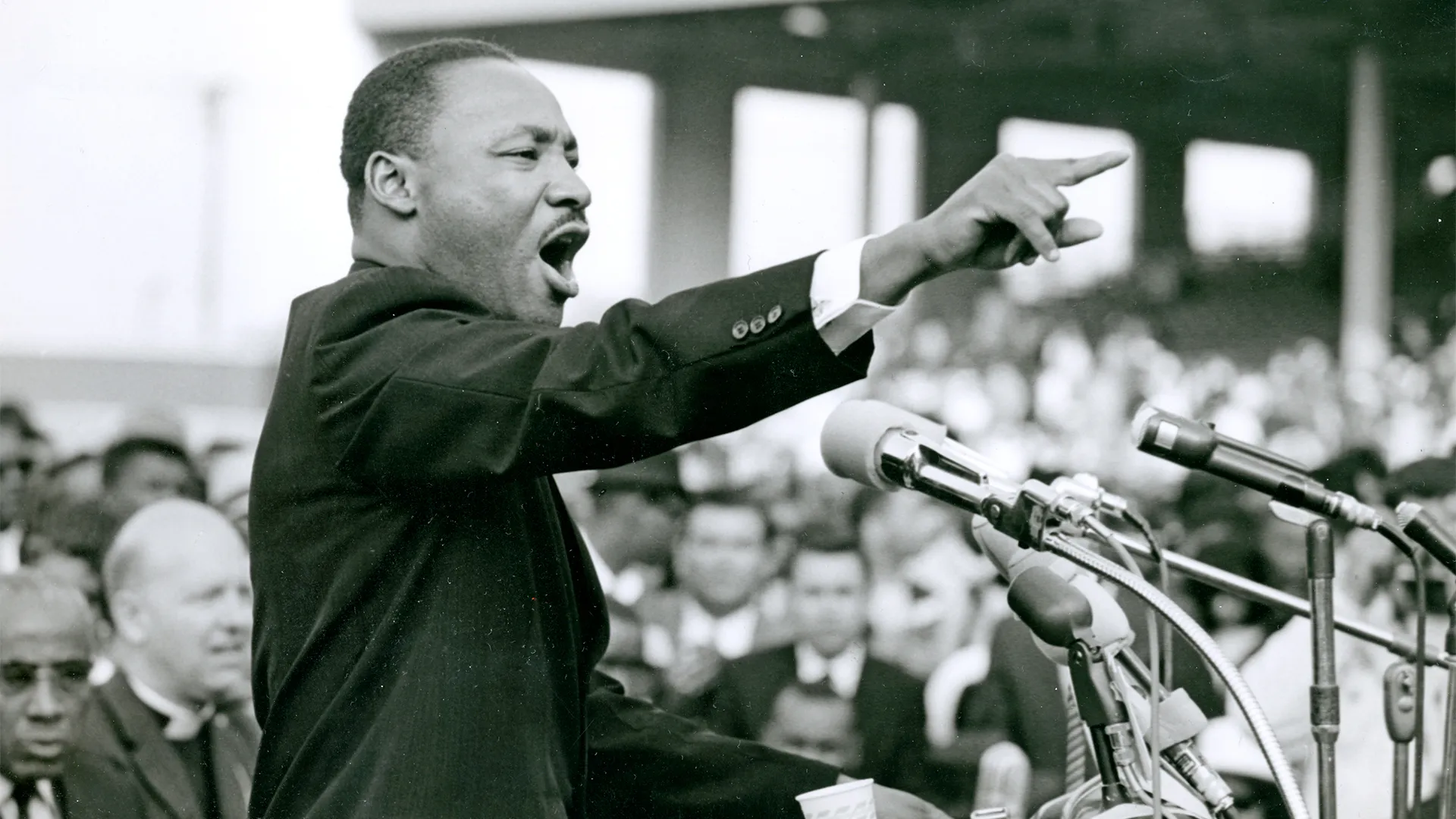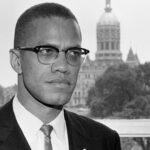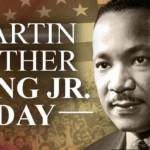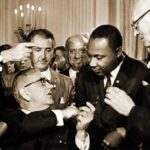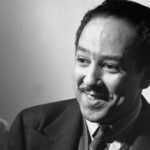Early Life and Education
Born Michael King Jr. on January 15, 1929, in Atlanta, Georgia, he later adopted the name Martin Luther King Jr. after his father, a Baptist minister, was inspired by the Protestant Reformation leader Martin Luther. Growing up in the segregated South, King experienced racial discrimination and witnessed the harsh realities of inequality.
As a precocious child, King skipped two grades in high school and entered Morehouse College at the age of 15. He was deeply influenced by his father’s teachings on equality and justice, setting the stage for his future role as a civil rights leader.
Educational Achievements and Spiritual Journey
In 1955, Martin Luther King Jr. completed his Ph.D. in Systematic Theology from Boston University, where he developed his commitment to nonviolent resistance. His spiritual journey, shaped by his father’s Baptist ministry and exposure to Mahatma Gandhi’s philosophy of nonviolent protest, became a cornerstone of his activism.
Marriage and Family Life
On June 18, 1953, King married Coretta Scott, whom he had met in Boston. The couple would have four children: Yolanda, Martin Luther III, Dexter, and Bernice. Coretta would become a vital supporter of her husband’s work, actively participating in the civil rights movement.
Leadership in the Civil Rights Movement
King emerged as a key figure in the civil rights movement during the 1950s and 1960s. His leadership in the Montgomery Bus Boycott (1955-1956) marked the beginning of a powerful era of civil rights activism. King’s commitment to nonviolent resistance was evident in his involvement with the Southern Christian Leadership Conference (SCLC), founded in 1957.
Achievements and Contributions
Martin Luther King Jr.’s contributions to the civil rights movement were instrumental in advancing racial equality in America. His leadership in the March on Washington for Jobs and Freedom in 1963, where he delivered his iconic “I Have a Dream” speech, played a pivotal role in shaping public opinion and influencing political change.
King’s advocacy contributed significantly to the passage of the Civil Rights Act of 1964 and the Voting Rights Act of 1965. His commitment to nonviolent resistance inspired individuals worldwide and established him as a symbol of hope for those fighting against injustice.
Assassination and Legacy
Tragically, on April 4, 1968, Martin Luther King Jr. was assassinated at the Lorraine Motel in Memphis, Tennessee. His death marked a dark day in American history, but his legacy endured. The civil rights leader’s dream of racial equality and justice lived on, influencing future generations to continue the struggle for a more equitable society.
Martin Luther King Jr.’s “I Have a Dream” Speech
Delivered on August 28, 1963, during the March on Washington for Jobs and Freedom, King’s “I Have a Dream” speech remains one of the most iconic and influential addresses in history. In this powerful oration, he eloquently expressed his dream of a nation where people would be judged by their character rather than the color of their skin. His vision resonated globally, becoming a symbol of the ongoing struggle for civil rights and equality.
Top 20 Questions About Martin Luther King Jr.
1. Who Was Martin Luther King Jr.?
Martin Luther King Jr. was a prominent American civil rights leader and Baptist minister known for his role in advancing civil rights using nonviolent protest.
2. What Is Martin Luther King Famous For?
King is famous for his leadership in the American civil rights movement, advocating for racial equality through nonviolent means.
3. What Did Martin Luther King Do?
King led civil rights activities, including the Montgomery Bus Boycott and the March on Washington. He played a key role in the passage of significant civil rights legislation.
4. Martin Luther King Jr. Quotes
Enduring quotes include “I have a dream” and “Darkness cannot drive out darkness; only light can do that.”
5. Where Was Martin Luther King Born?
King was born in Atlanta, Georgia, at 501 Auburn Avenue.
6. Martin Luther King Jr. Date of Birth and Death
He was born on January 15, 1929, and assassinated on April 4, 1968.
7. How Old Was Martin Luther King, Jr When He Died?
King was 39 years old when he was assassinated.
8. Martin Luther King Jr. Age at Death
At the time of his death, Martin Luther King Jr. was 39 years old.
9. How Did Martin Luther King Get His Name?
He was born Michael King Jr. but later had his name changed to Martin Luther King Jr. after his father’s admiration for Martin Luther.
10. Was MLK a Doctor?
Yes, Martin Luther King Jr. received his Ph.D. in Systematic Theology from Boston University.
11. How Old Was MLK When He Changed His Name?
He officially changed his name when he was 6 years old.
12. How Old Was MLK When He Gave His Speech?
Martin Luther King Jr. delivered his “I Have a Dream” speech at the age of 34 on August 28, 1963.
13. Was Martin Luther King Assassinated?
Yes, he was assassinated on April 4, 1968, in Memphis, Tennessee.
14. How Many Little Children Did Dr. King Say He Had?
In his “I Have a Dream” speech, King spoke of having four little children.
15. Who Did MLK Marry?
He married Coretta Scott King on June 18, 1953.
16. Who Kissed Martin Luther King?
There is no historical evidence of any specific person kissing Martin Luther King Jr. in a notable context.
17. Who Assassinated Martin Luther King’s Mother?
King’s mother, Alberta Williams King, was assassinated by Marcus Wayne Chenault on June 30, 1974.
18. How Did MLK Meet His Wife?
Martin Luther King Jr. and Coretta Scott King met in Boston in 1952 while both were studying at Boston University.
19. Is Coretta Scott King Still Alive?
No, Coretta Scott King passed away on January 30, 2006.
20. Who Was Dr. King’s White Girlfriend?
There is no documented evidence of Dr. King having a white girlfriend.
Conclusion: Remembering the Dreamer and Visionary
Martin Luther King Jr.’s commitment to justice, equality, and nonviolent activism has left an enduring legacy that transcends time. As we reflect on his life, let us continue to work towards building a world that embraces the principles of love, equality, and unity he championed. His “I Have a Dream” speech remains a timeless reminder of the transformative power of hope and the pursuit of a better tomorrow.

